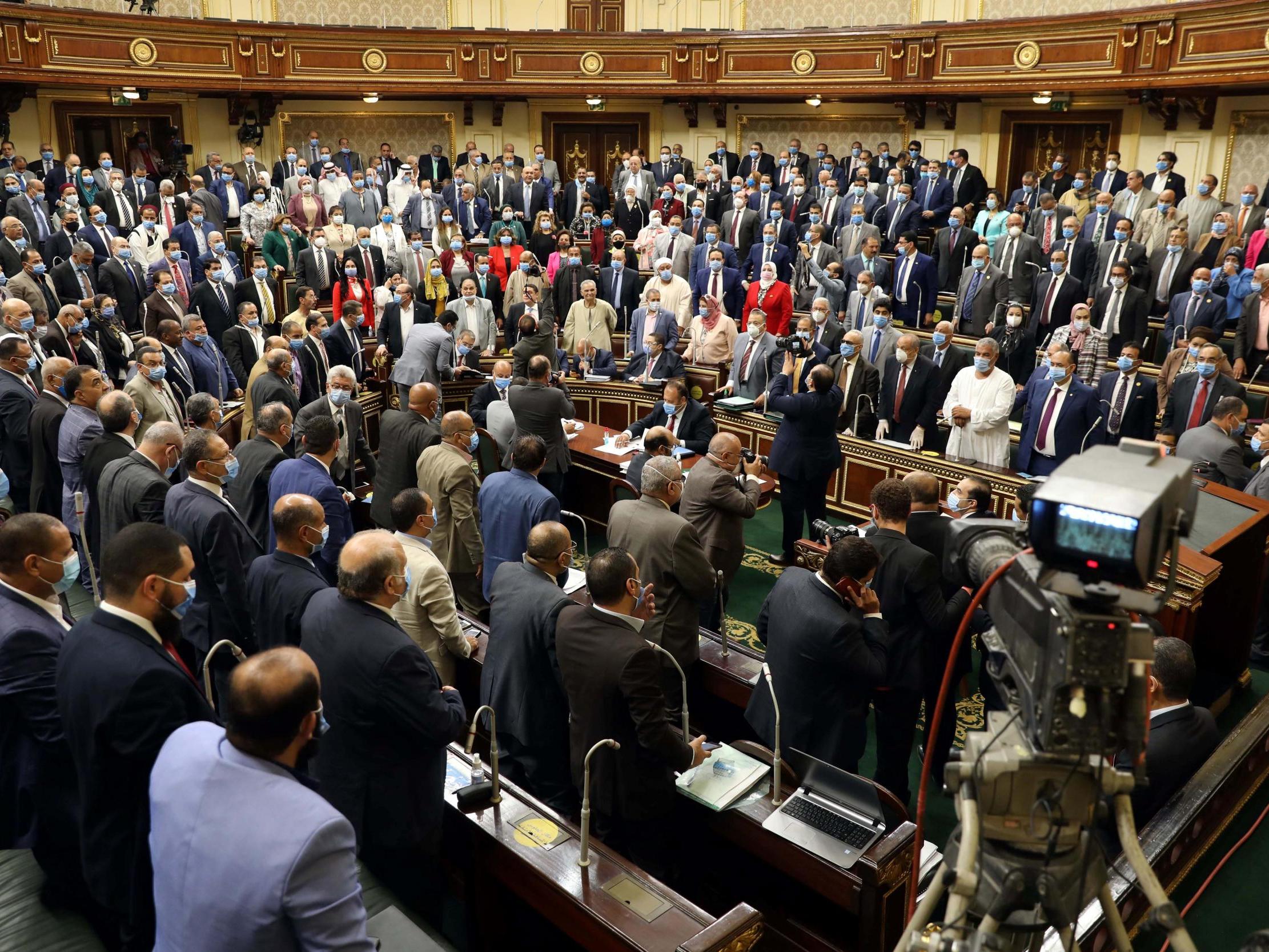‘Too late to stop’: Egypt and Turkey ramp up Libya war preparations
Both sides are eager to avoid confrontation, but the escalation continues as Egypt’s parliament votes to approve military intervention

Your support helps us to tell the story
From reproductive rights to climate change to Big Tech, The Independent is on the ground when the story is developing. Whether it's investigating the financials of Elon Musk's pro-Trump PAC or producing our latest documentary, 'The A Word', which shines a light on the American women fighting for reproductive rights, we know how important it is to parse out the facts from the messaging.
At such a critical moment in US history, we need reporters on the ground. Your donation allows us to keep sending journalists to speak to both sides of the story.
The Independent is trusted by Americans across the entire political spectrum. And unlike many other quality news outlets, we choose not to lock Americans out of our reporting and analysis with paywalls. We believe quality journalism should be available to everyone, paid for by those who can afford it.
Your support makes all the difference.Egypt and Turkey edged closer to the possibility of armed conflict this week over Libya, with both sides preparing for an impending battle over a key city.
Egypt’s obsequious parliament voted unanimously behind closed doors late on Monday to authorise president Abdel Fattah el-Sisi’s proposed military intervention in support of renegade Libyan warlord Khalifa Haftar. Mr Sisi on Monday reportedly spoke with US president Donald Trump in a likely attempt to get Washington to convince Ankara to stand down.
Meanwhile, Turkey and its Libyan allies of the internationally recognised Government of National Accord (GNA) positioned heavy weaponry and fighters along the battlefront near the city of Sirte, the central Libyan city that is the gateway to the country’s crucial eastern oil infrastructure.
Libya was plunged into conflict following the toppling of longtime ruler Muammar Gaddafi in 2011 in a Nato-backed war. Mr Haftar’s Libyan Arab Armed Forces and the GNA and its antecedents have been battling for control of the country for more than six years.
The battle over Sirte, the hometown of Gaddafi, is also shaping up as a confrontation between two axis in the Middle East. On the one side are the authoritarian regimes of Egypt, Saudi Arabia, and the United Arab Emirates, backed by Russia and France, who support Hafar’s Libyan Armed Armed Forces. On the other are populist Islamist-leaning governments in Turkey, Qatar and Libya’s Tripoli.
Mr Haftar was winning the war until Turkey forcefully intervened earlier this year, turning the tide of the conflict with its sophisticated domestically-made surveillance and combat drones, air defence systems, and Nato-calibre battle planning.
On Monday, Qatar’s defence minister Khalid bin Mohammad al Attiyah, Turkish defence minister Hulusi Akar and Libyan interior minister Fathi Bashagha conferred in Ankara over the impending conflict. Turkey has been flooding Libya with weapons, flying transport planes to the recently captured al-Watiya airbase to avoid French attempts to intercept its ships at sea.
“It’s not like anything I have ever seen in my lifetime,” said Yoruk Isik, an open source intelligence analyst who closely monitors Turkish ship and plane movements. “This is probably the limit that our planes can travel. It’s not executed just well, it’s executed exceptionally well.”
Video footage posted on the internet showed convoys of trucks full of GNA fighters from nearby Misrata and other cities heading to Abugrein, which lies about 90 minutes from Sirte. Turkish media reported the deployment of T-122 Sakarya multiple rocket launchers and Korkut anti-aircraft systems outside Sirte.
Egypt faces a more formidable logistical challenge. Its eastern border lies a long day’s drive from the city. Its longer range fighter jets would have limited utility without close air support for ground troops.
Libya’s eastern-based parliament, which is under Mr Haftar’s sway, welcomed the potential Egyptian intervention. But Mr Sisi has strongly hinted that the threat of Egyptian military intervention was meant to deter a Turkish-backed incursion into Sirte and the southern city of Jufra, another flashpoint in the confrontation.
“I don’t think that Egypt will go for war,” said Karim Salem, a Libya expert at the Cairo Centre for Human Rights Studies, a Geneva-based advocacy organisation. “Even if they enter the east, they will not go for confrontation. For now, it’s a way to push from both sides that Sirte and Jufra be empty of military presence.”
The threat of military confrontation has prompted international players to refocus efforts on Libya. On Saturday, Germany, France and Italy issued a statement vowing to enforce a longstanding UN arms embargo on Libya that is now openly flouted by all sides.
“No one wants to see an escalation in Libya,” Mirette Mabrouk, a scholar at the Middle East Institute in Washington, wrote in a note on Monday. “The threat of spiralling violence, with the capacity to turn into another fully fledged proxy war, might be just the spur to political settlement that was needed.”
But forces loyal to the GNA have said repeatedly that they are poised to enter Sirte, with senior officials publicly stating that they are only awaiting the go-ahead from Turkey. Officials in Ankara have been negotiating with Moscow for a withdrawal of suspected Russian mercenaries deployed to both Sirte and Jufra, but the talks appear to have reached a stalemate.
Mr Isik called the Sirte operation “inevitable,” driven as much by Turkey’s domestic political calculations as what’s happening on the ground in Libya. The city is the last major urban outpost before Libya’s “oil crescent”, which includes refineries, storage facilities and export terminals in Ras Lanuf, Brega and al-Sidr.
“They’re going to take the opportunity in Sirte,” he said. “Maybe they will figure out some bizarre arrangement with the Russians. But they’re going to take [Haftar] out. The process has already started and it’s too late to stop it.”
Join our commenting forum
Join thought-provoking conversations, follow other Independent readers and see their replies
Comments